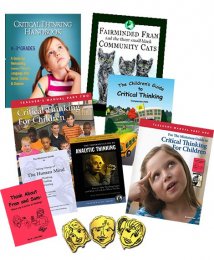
The K-3 Teacher Bundle includes instructional design materials for grades K-3, elementary products for classroom use, and materials to help the teacher learn and begin to internalize the concepts of critical thinking. The Thinker's Guides included help deepen a teacher’s understanding of the foundations of critical thinking.